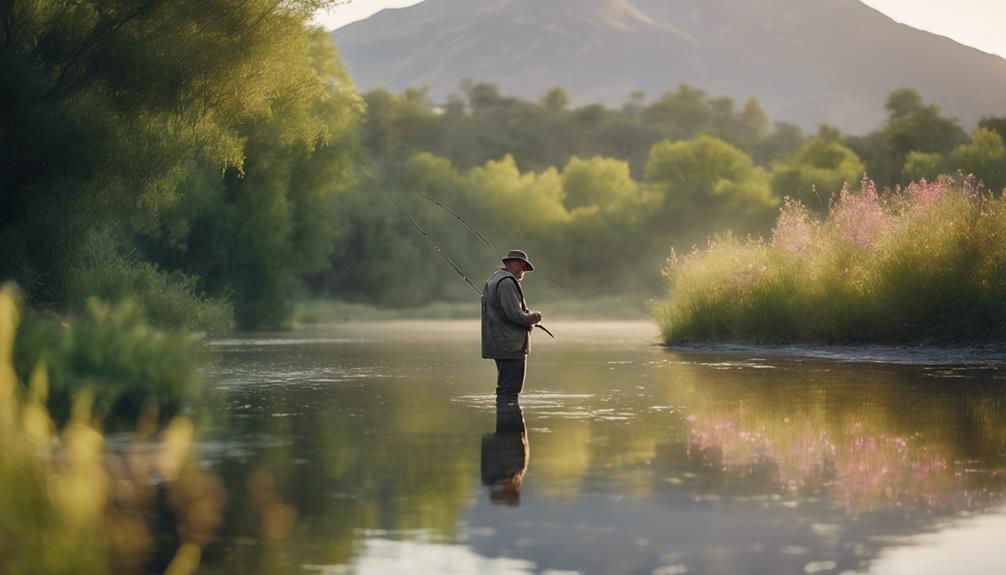Fishing is not just a hobby for many; it’s a way of life. Whether you’re casting a line at a local pond or planning a trip to the ocean, understanding the regulations surrounding fishing licenses is crucial. One of the most common questions that anglers ask is, “How long do fishing licenses last?” In this blog post, we will delve into the intricacies of fishing licenses, including their duration, types, and key considerations for anglers.
Understanding Fishing Licenses: What You Need to Know
Fishing licenses are permits issued by state or provincial governments that allow individuals to fish in specific waters. Each jurisdiction has its own regulations, which can vary widely. In general, fishing licenses are designed to protect fish populations and ensure sustainable fishing practices. Most areas require a fishing license for anyone over a certain age, typically 16 or 18 years old, and these licenses often come with specific rules regarding the type of fish you can catch, the methods you can use, and the seasons when fishing is permitted.
How Long Do Fishing Licenses Last? Types and Durations
The duration of fishing licenses varies depending on the type of license purchased and the regulations of the specific state or province. Generally, fishing licenses can be categorized into three main types: annual, short-term, and lifetime licenses.
1. Annual Licenses: These are the most common type of fishing license and typically last for one calendar year. For example, if you purchase a license on June 1, it will generally expire on December 31 of that year.
2. Short-Term Licenses: If you’re visiting a location for a short period, you might consider a short-term fishing license. These licenses can last anywhere from one day to a week and are perfect for tourists.
3. Lifetime Licenses: Some jurisdictions offer lifetime fishing licenses, which allow you to fish for the rest of your life without needing to renew. These licenses are often more expensive upfront but can be a good investment for avid anglers.
Factors That Affect Fishing License Duration
Various factors can influence how long your fishing license lasts. Each state has its own set of regulations, and these rules can change frequently. Some factors that might affect the duration of a fishing license include:
– Age: Some states offer discounted or even free licenses for seniors or those under a certain age.
– Residency: Residents often pay lower fees for licenses compared to non-residents, and durations may also differ.
– Type of Fishing: Licenses for freshwater fishing may differ from those for saltwater fishing in terms of duration and cost.
Always check your local regulations to understand the specifics related to your fishing license.
Renewing Your Fishing License: What You Need to Know
When your fishing license is about to expire, renewing it is essential to continue fishing legally. Renewing your fishing license is typically a straightforward process. Most states provide online services where you can easily renew your license. In some cases, you may also need to provide proof of residency or identification.
It’s advisable to renew your fishing license before it expires to avoid any interruptions in your fishing activities. Additionally, some jurisdictions offer discounts for early renewals, so keeping an eye on expiration dates can save you money in the long run.
How to Obtain a Fishing License: Step-by-Step Guide
Obtaining a fishing license is a relatively simple process, but it can vary from state to state. Here’s a step-by-step guide to help you navigate the process:
1. Check Requirements: Visit your state’s fish and wildlife agency website to check the specific requirements for obtaining a fishing license.
2. Choose Your License Type: Decide whether you need an annual, short-term, or lifetime license based on your fishing habits.
3. Gather Documentation: You may need to provide identification, proof of residency, or, in some cases, a social security number.
4. Complete the Application: Fill out the application form, which can often be done online.
5. Pay the Fee: Submit your payment. Fees can vary widely based on the type of license, residency status, and age.
6. Receive Your License: After processing, you will receive your fishing license, which you should carry with you while fishing.
Importance of Having a Valid Fishing License
Having a valid fishing license is not just a legal requirement; it also plays a crucial role in conservation efforts. Fishing licenses fund various programs aimed at protecting aquatic habitats, managing fish populations, and conducting research. By purchasing a fishing license, you are contributing to the sustainability of fishing and helping to ensure that future generations can enjoy this pastime.
Additionally, fishing without a license can lead to hefty fines and legal repercussions, which can spoil your fishing experience. Always ensure that you have a valid license before heading out on the water.
Frequently Asked Questions About Fishing Licenses
Anglers often have questions about fishing licenses. Here are some common inquiries:
– Can I fish without a license? Generally, no. Fishing without a valid license can result in fines.
– Are there exceptions? Some states offer free fishing days or exemptions for certain groups, such as veterans.
– What if I lose my fishing license? Most states allow you to request a replacement license, often for a small fee.
If you have specific questions, it’s always best to consult your local wildlife agency for accurate information.
Conclusion: Stay Informed and Fish Responsibly
Understanding how long fishing licenses last and the regulations surrounding them can significantly enhance your fishing experience. By being informed about the types of licenses, renewal processes, and the importance of fishing licenses, you can ensure that you fish responsibly and legally. Remember, fishing is not just about the catch; it’s also about conserving our natural resources for future generations. Always check local regulations and stay compliant to enjoy your time on the water fully. Happy fishing!
